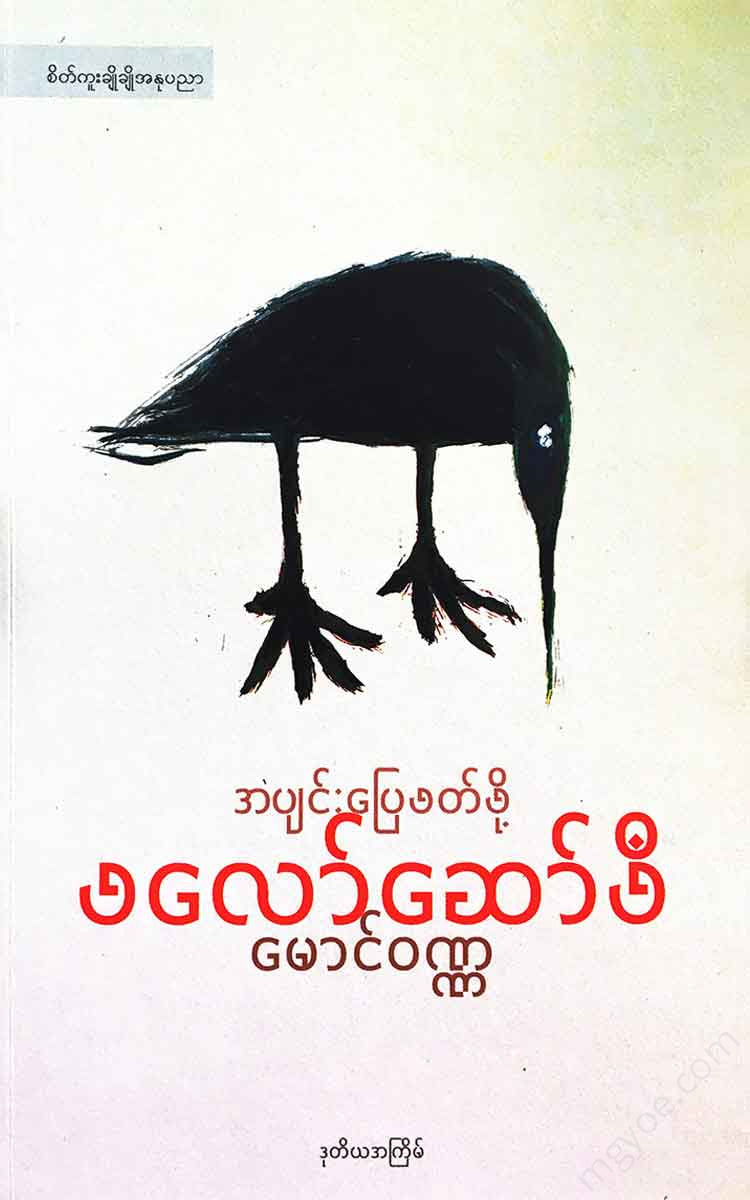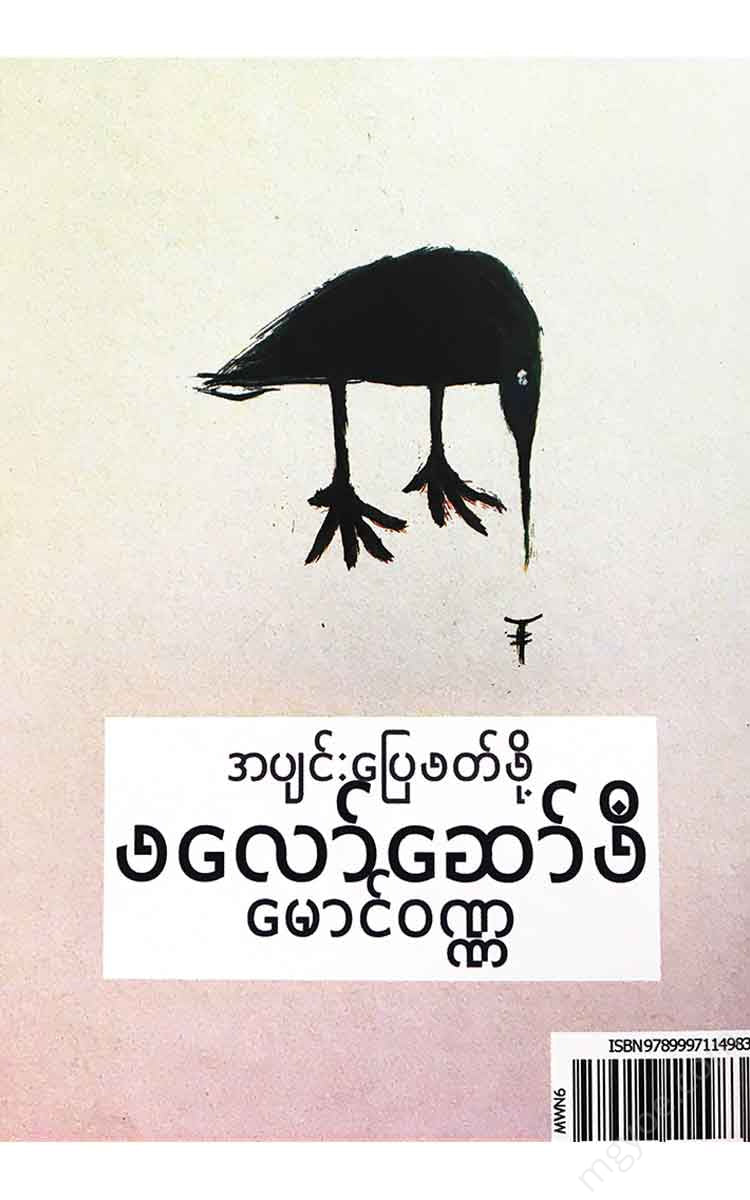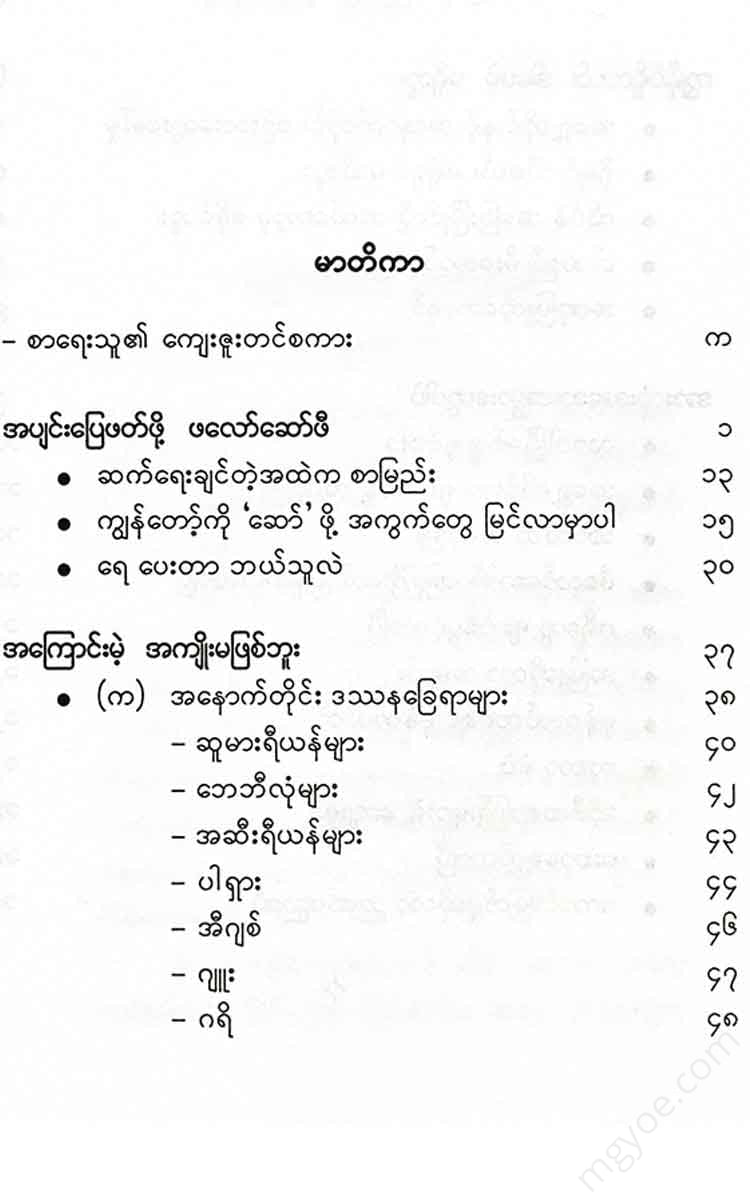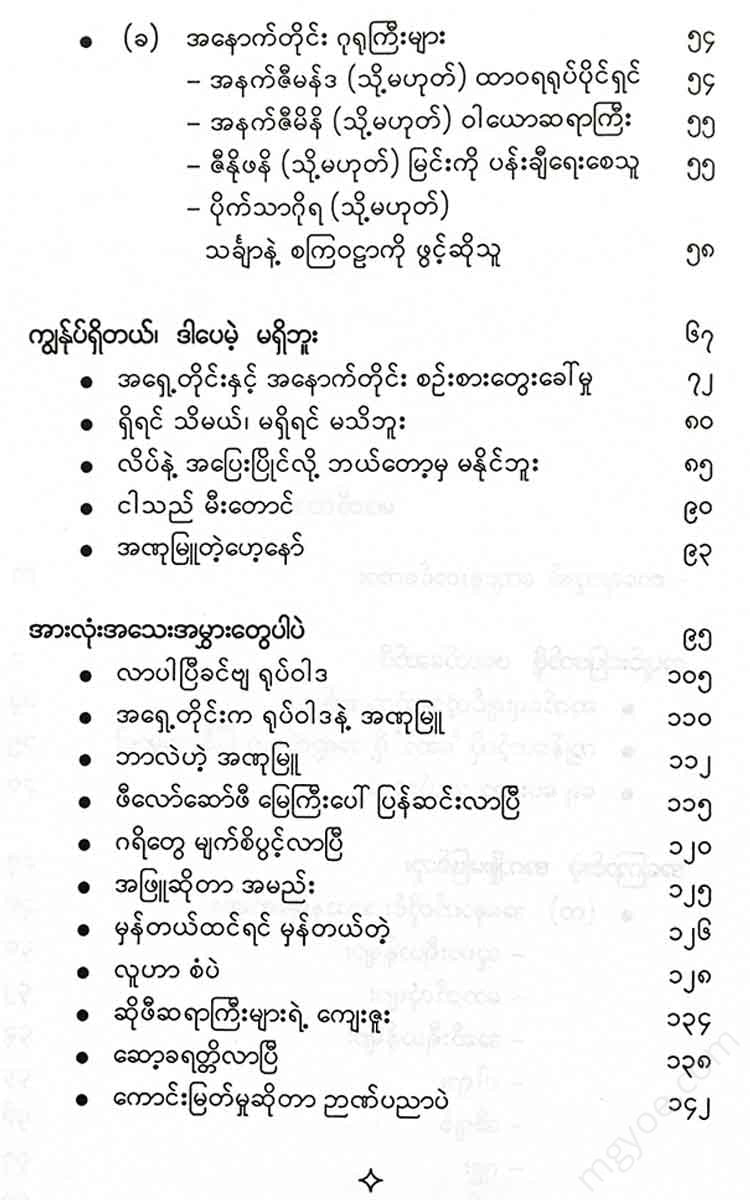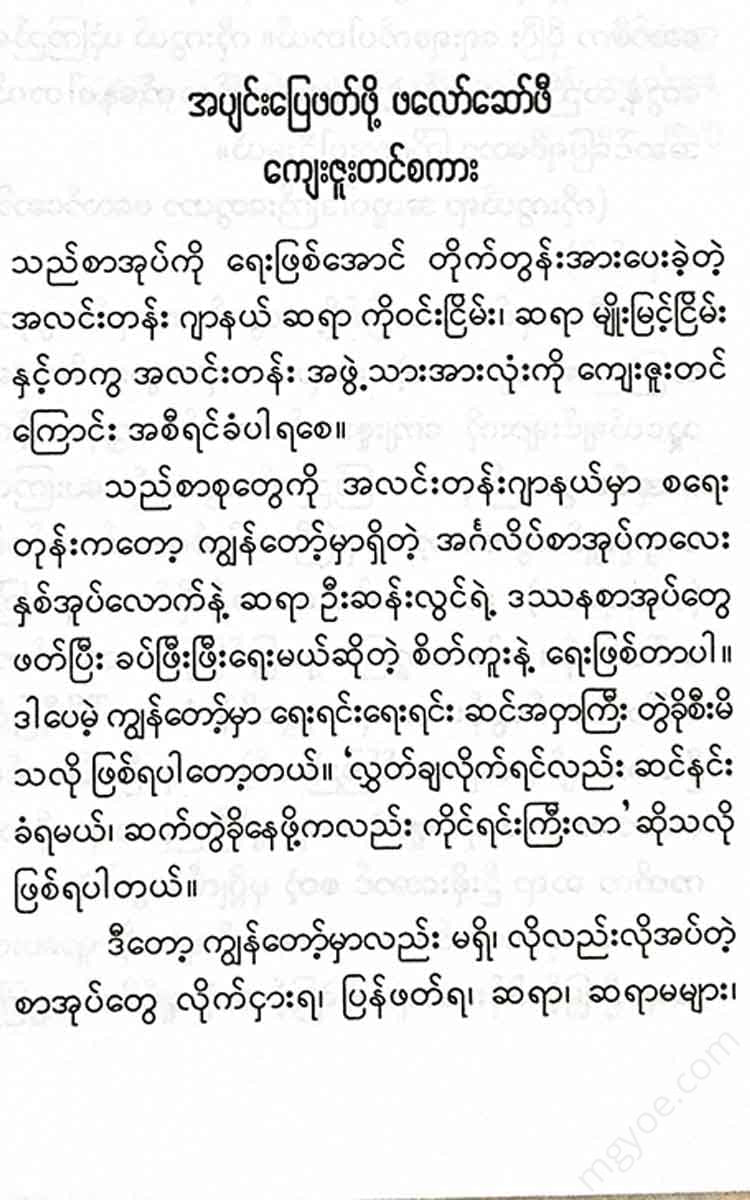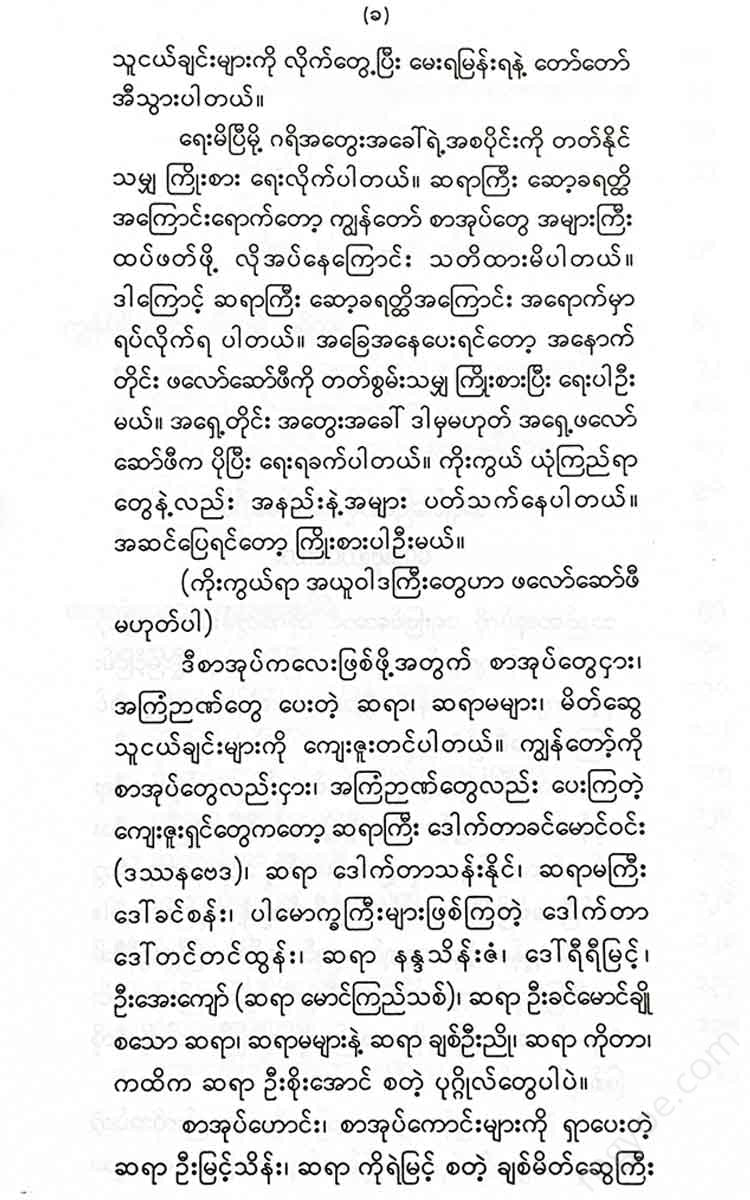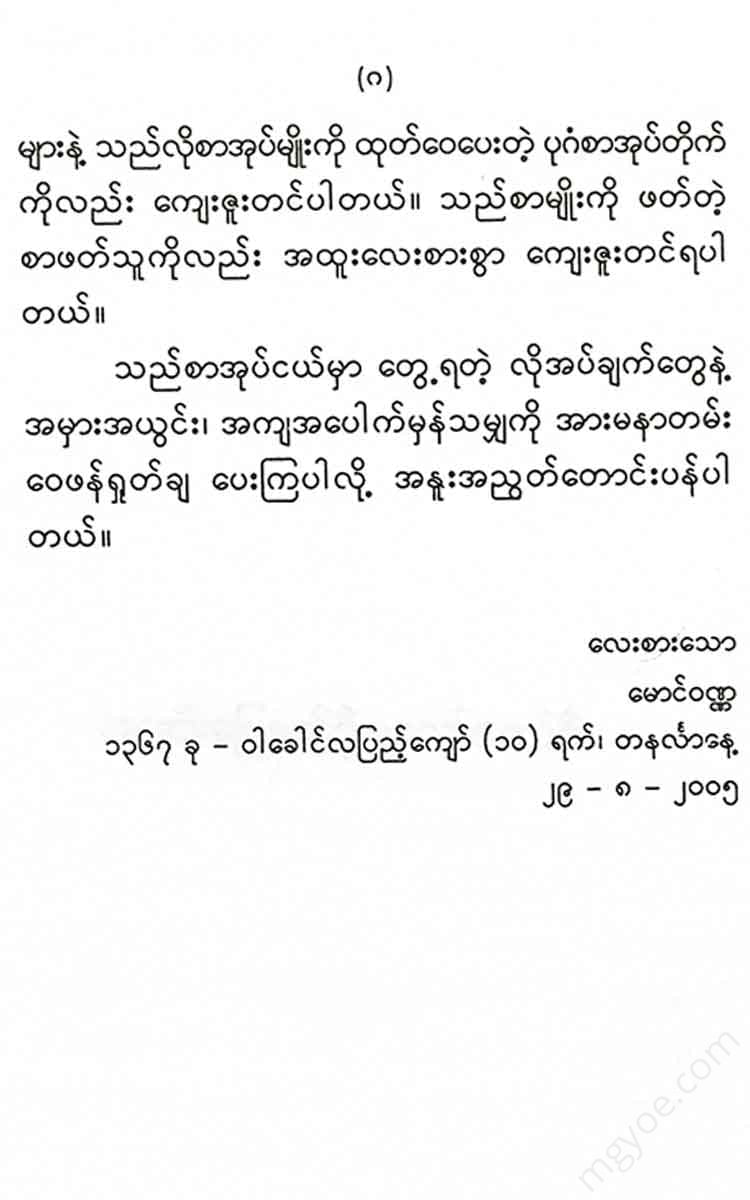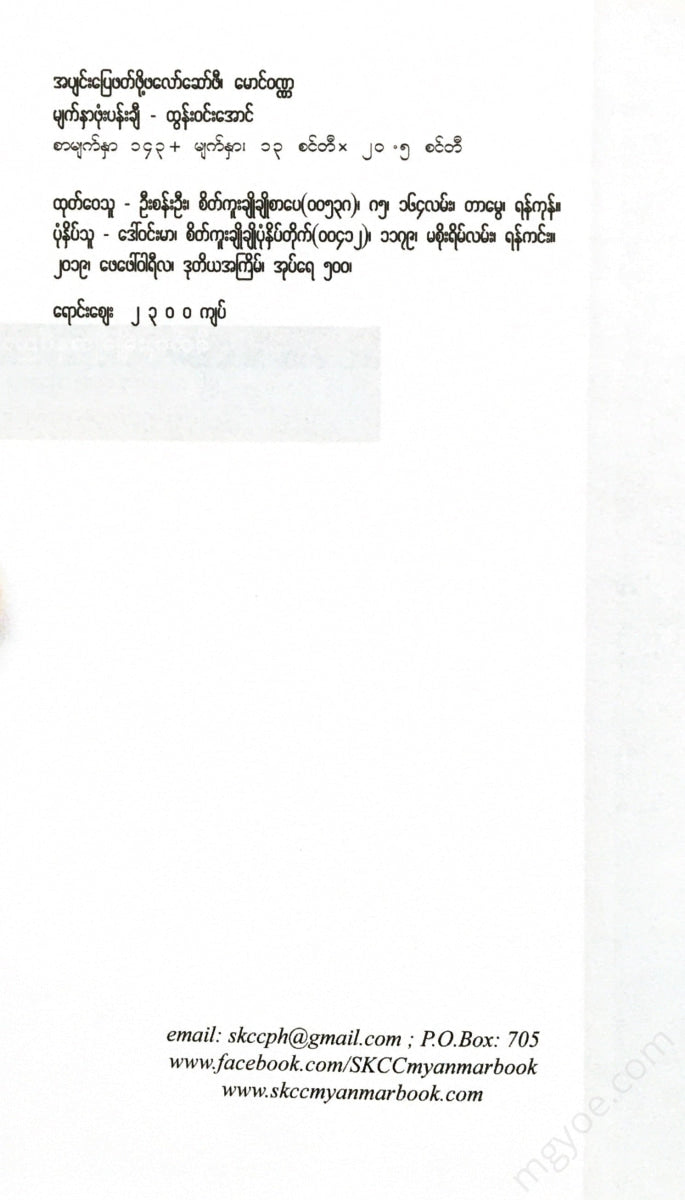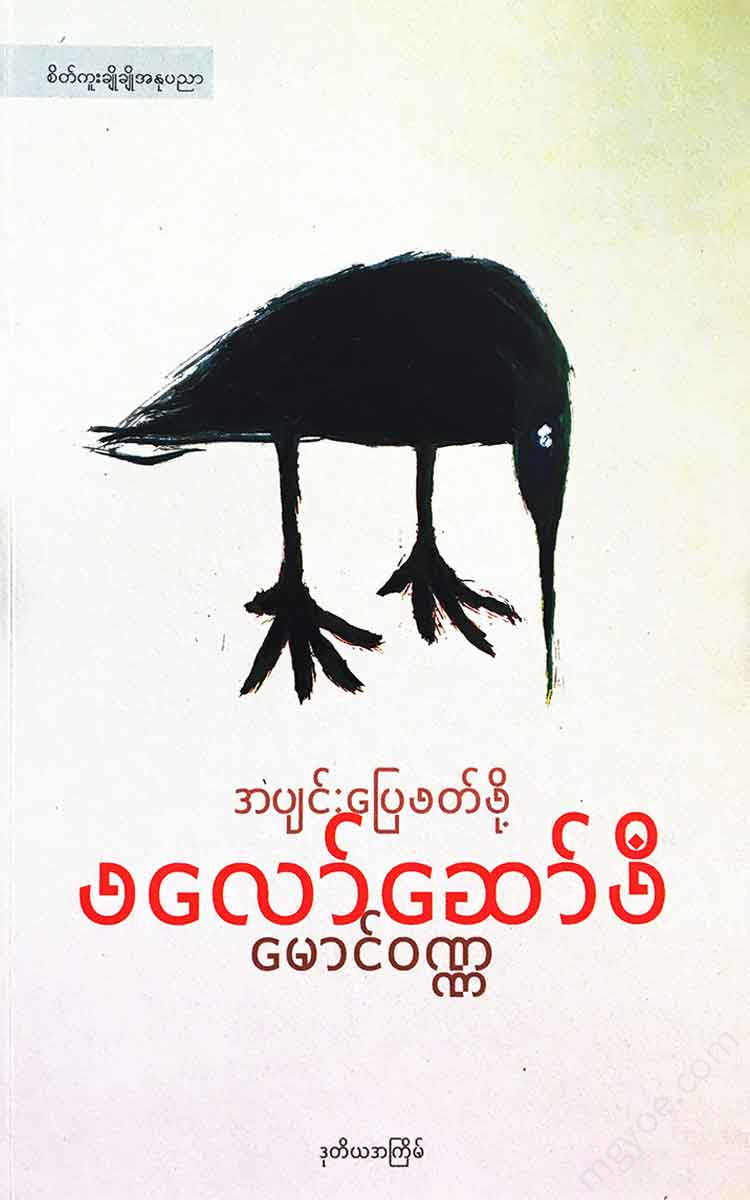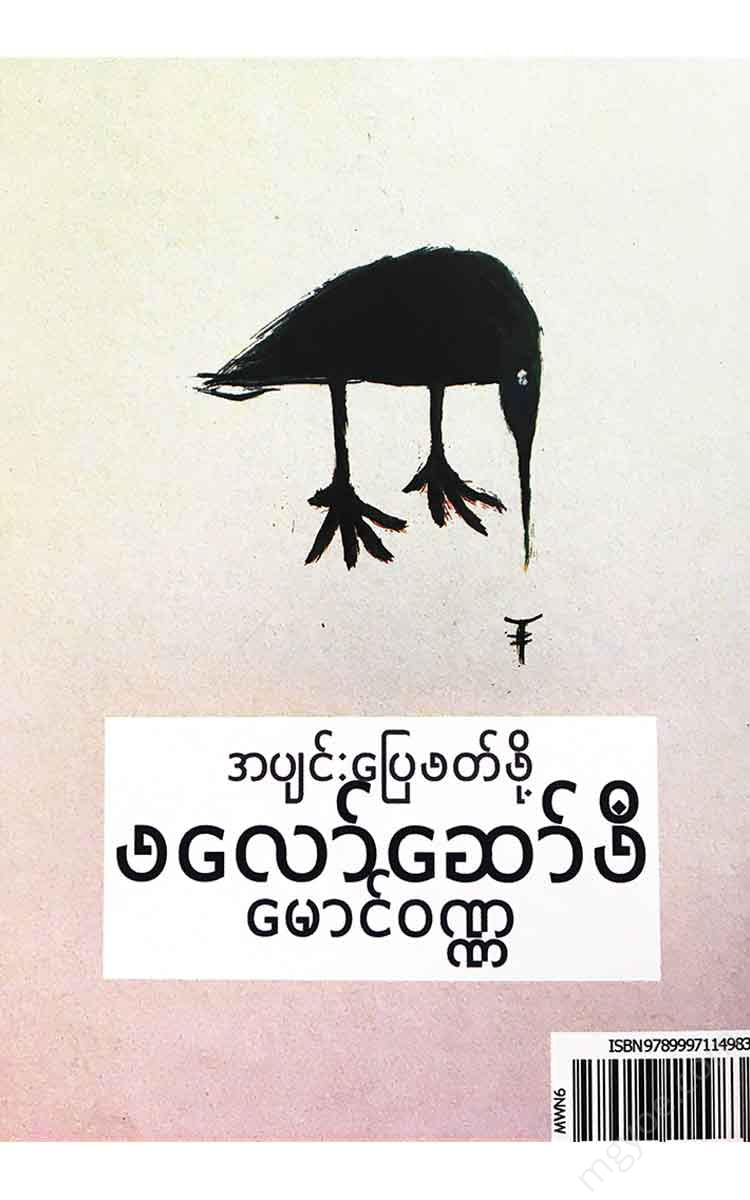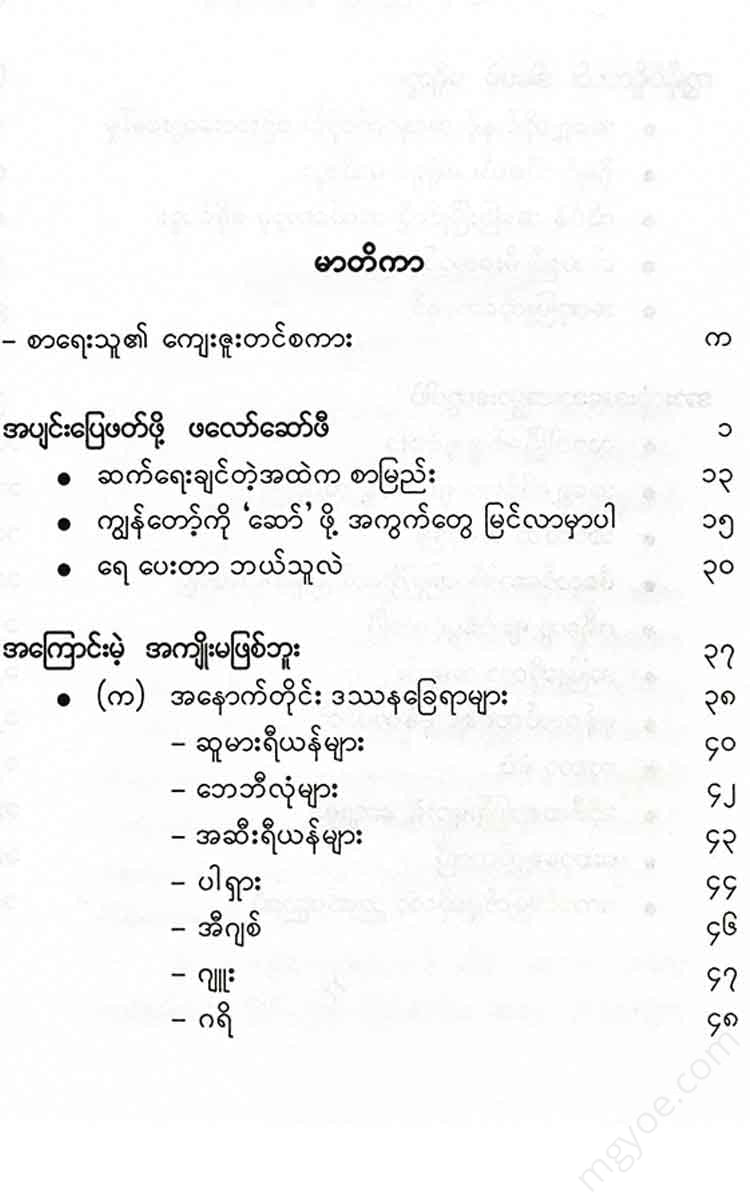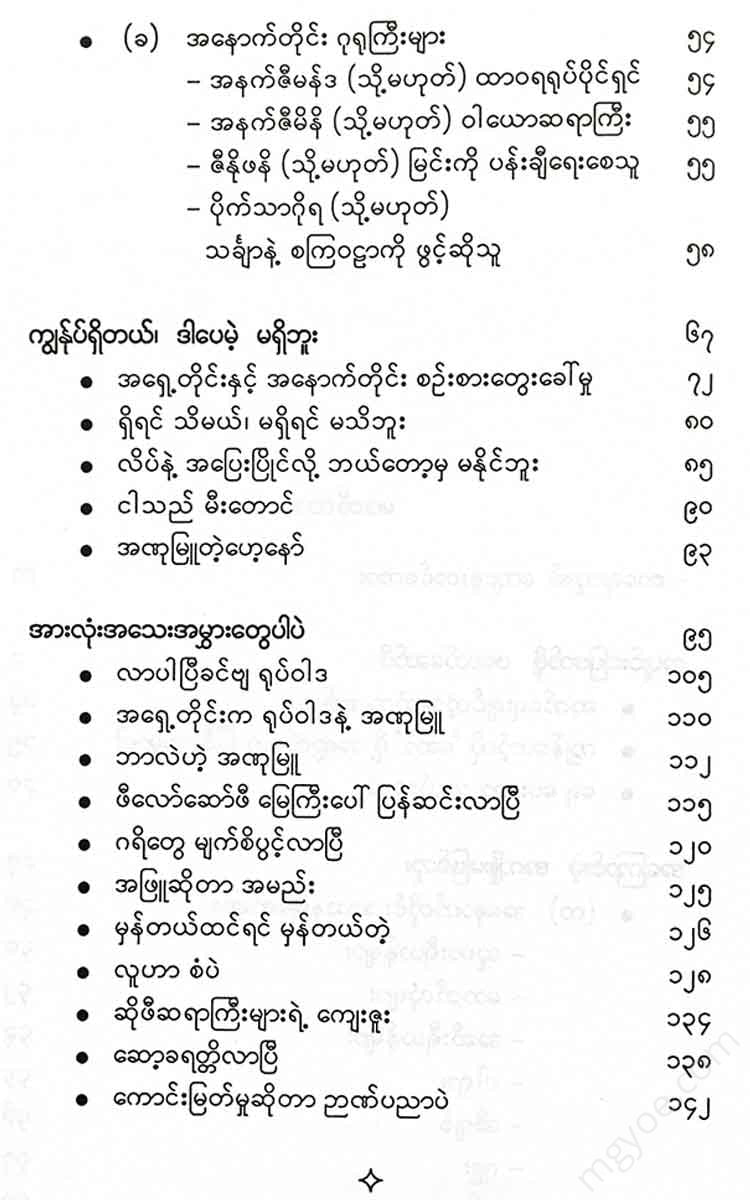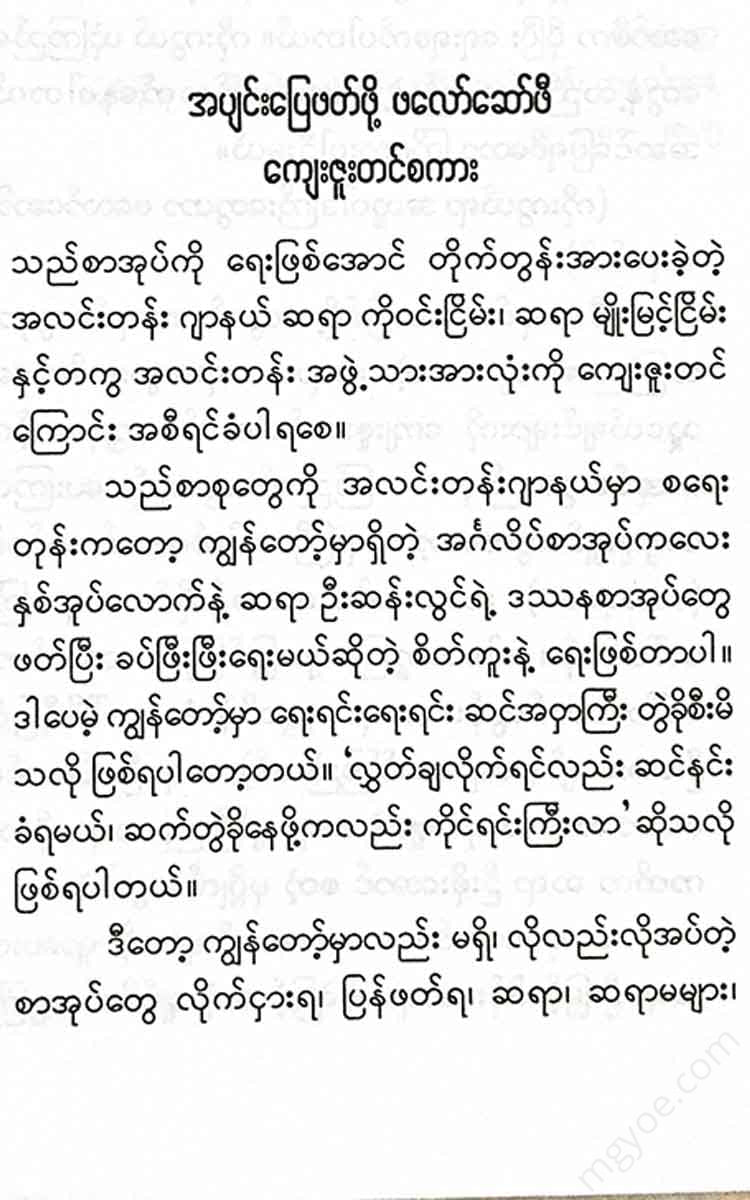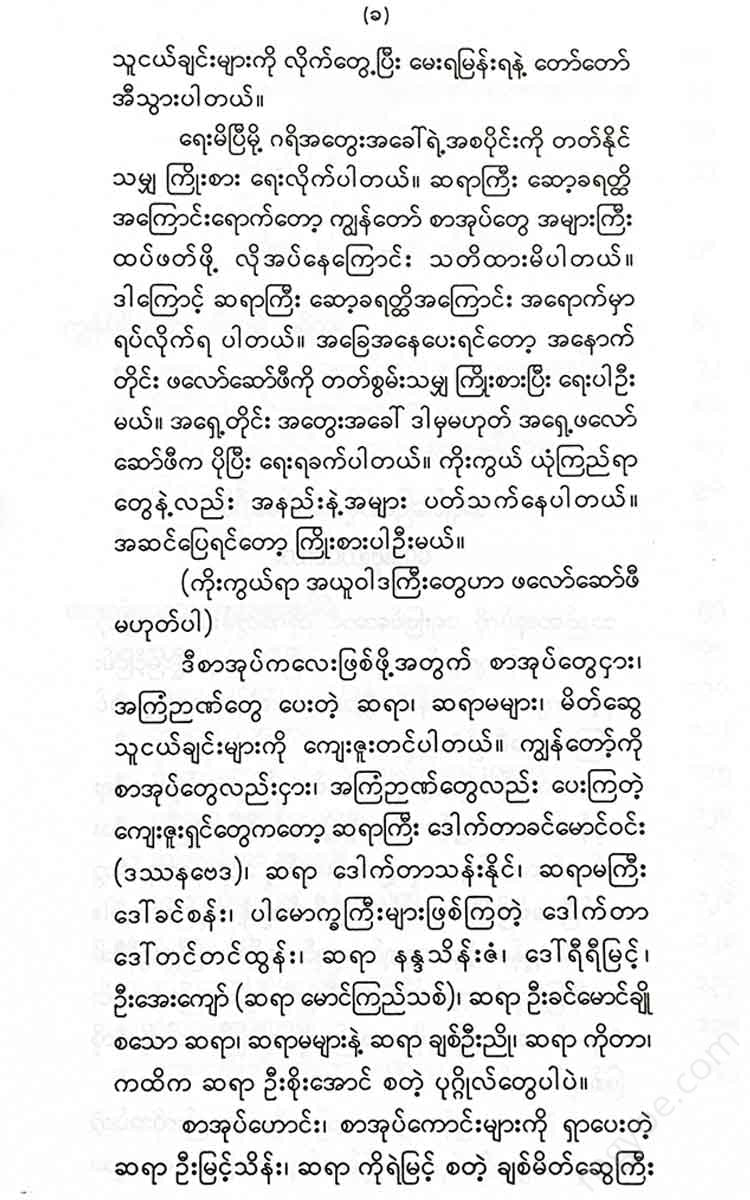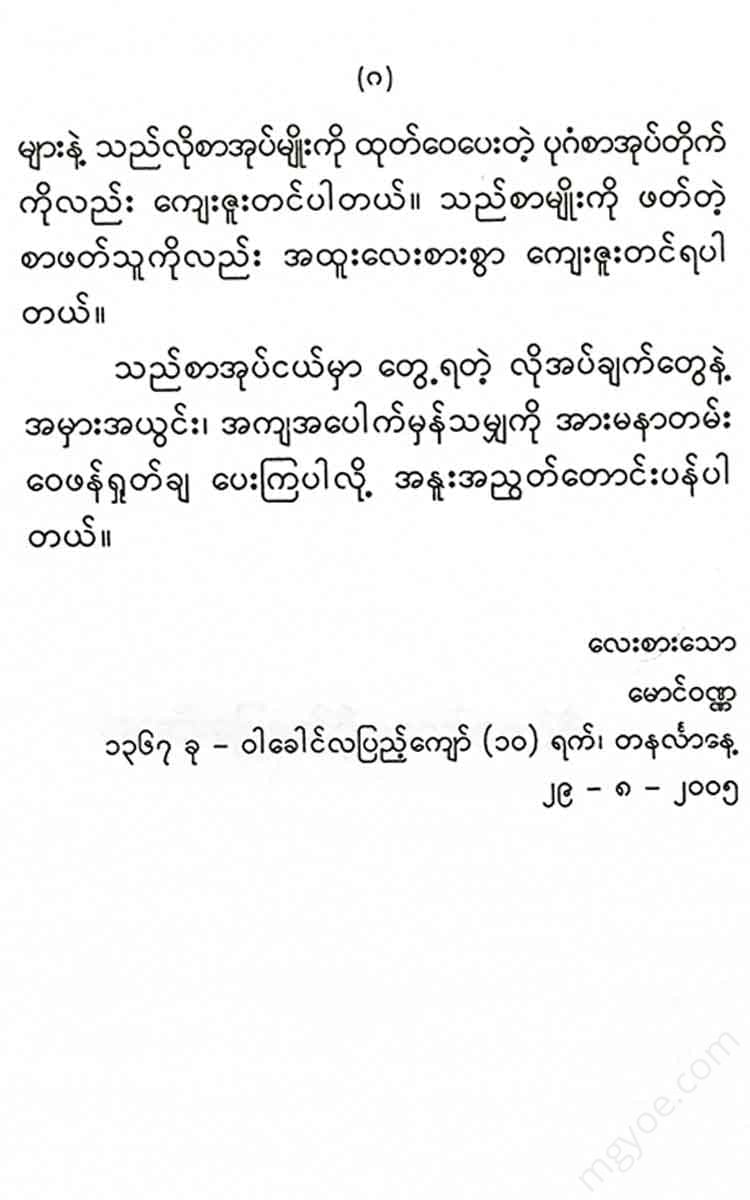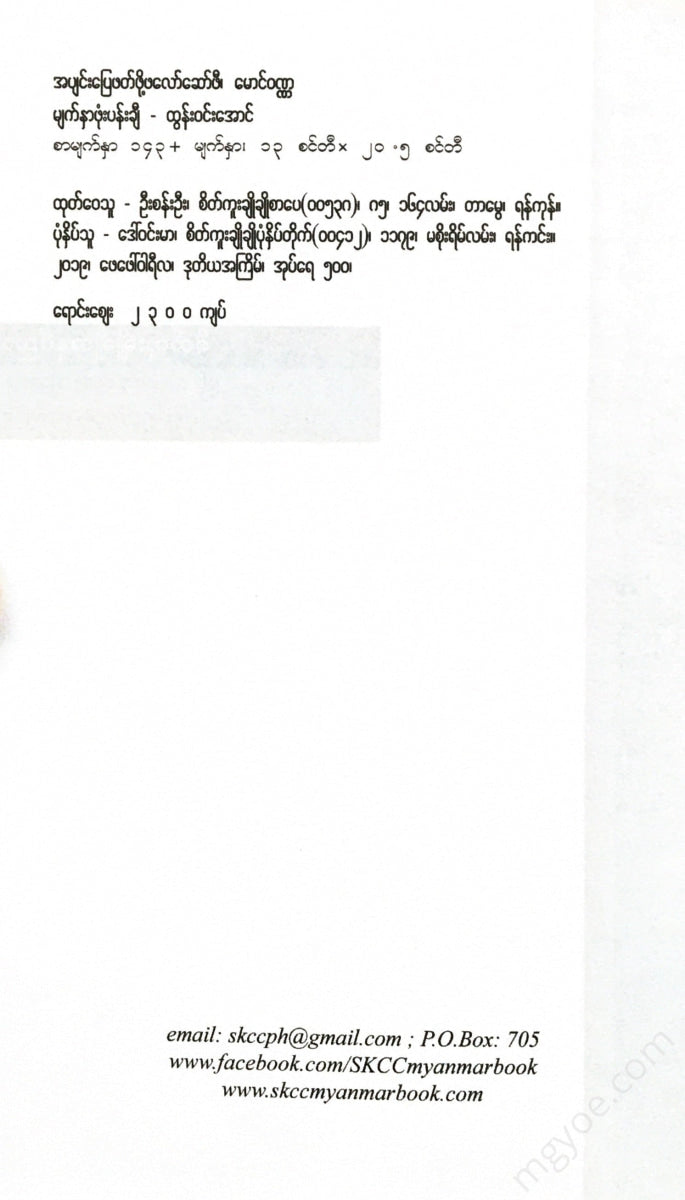စိတ်ကူးချိုချိုစာပေ
Maung Wunna - A philosophy book to read when you're bored
Maung Wunna - A philosophy book to read when you're bored
Couldn't load pickup availability
(Philosophy) Philosophy and Logic are like diamonds. (They are valuable). When a spacecraft was sent to Venus, it was said that "diamonds can be used as windows. The pressure on the surface of Venus is very high. Only diamonds can withstand that pressure. So they are valuable. (They are also like salt, use them in moderation.)
But you shouldn't wear a diamond ring when riding a bus. You should wear it only when you need it. Similarly, logic and philosophy should be used only when you need them.
A student in Sagaing Saung who was very fond of logic was sent to a mental hospital one night because he screamed, “Why does the dog bark?” (A local magazine wrote about logic, “No man is a monkey.” It’s a gibberish, an advertisement.) When we were in university, our philosophy students were called “the world’s great cats” by our classmates who took other subjects. They are not wrong. Because the philosophy we study is a subject that says, “It’s right, but it’s not right. It’s wrong, but it’s not wrong.” (It’s a cat. But it’s a cat for “sufficient” reasons.)
In this regard, let me share an experience from my student days. During my university years (1965/66 to 1969/70), books published by the Soviet Union were very cheap. You could buy thick books that you could sleep on for four or five kyats. If you asked for propaganda books at the Soviet embassy, they were free. At that time, among our philosophy students, Karl Marx 's dialectical materialism was very "popular".
( In the 21st century, Karl Marx 's writings are being studied in detail, critically and analytically.)
Among our teachers, there are those who are materialistic and those who are spiritual. There are also teachers who teach knowledge as if it were science. Our teacher U Soe Myint, who was a materialist at that time, left our school and followed the path of “Innwizza”. I don’t know how successful he was. Saya U San Lwin (writer and director U San Lwin) is an atheist who does not follow any religion. Later, Saya U San Lwin entered the Sangha with the title of “Shin Adisramthi”, preached, taught, and meditated, and passed away. Saya Dr. (U) Than Naing returned from (Soviet) Russia with a doctorate degree. It was a lot of fun.
Teachers such as Daw May Tin Htut, Daw Khin Set Yi, Daw Than Swe, Daw Khin Aye Thi, Daw Khin San, and U Than Aung Gyi are all great teachers who can teach the curriculum well.
We, the people, talk about materialism the most and deny it the most. It is a time when we are getting tired of saying “dialectical materialism”. Professor Dr. (U) Khin Maung Win heard them talking like that. Can you bear not to hear it? They were arguing loudly in the corridor behind the professor’s office.
One day, Professor Dr. (U) Khin Maung Win called the entire Arts class, including the students of the Master of Arts and the Master of Arts, to give a lecture in the Arts Hall. He traced the history of Western materialism. To make it easier for us to understand, he used Heraclitus’s ‘You step and do not step into the same river twice: we are and we are not’ (in English, ‘ You step and do not step into the same river: we are and we are not’). It is the same as if we were to go directly back to it. If we were to explain it, it would take a whole chapter. Let’s discuss it.
The concept of change begins. Then, he talks about the atomism of Lucipus and the Democritus (the materialism of the Charvakas in India ) . He explains the idea of the Democritus that everything in the world is made up of atoms. He talks about Plato's Republic , Aristotle's eternalism, and then how the influence of Aristotle's ideas caused Europe to become outdated for about a thousand years in the Middle Ages (Dark Ages), and then how they were revived, the development of science, the brief changes in ideas, and the weaknesses of Hegel's Absolute Idea.
Then the materialism of the “Strategic Bash”. And then the materialism of Marx’s diary. Marx’s poor and naive life (Marx was from a noble family. His wife, Ginny Westphalen, was also the sister of a Prussian minister. But Marx’s wife “Ginny” died of poverty and lack of medical care. Marx himself, supported by the great French philosopher Friedrich Engels, wrote the great works “On Philosophical Poverty” and “Capital” in order to survive. He died of starvation, to put it simply, near the end of Das Kapital. Friedrich Engels wrote the final part of Capital.
There is a joke about these two great books, " Capital " and "Poverty of Philosophy" (Marx wrote only those two books). Read it at your leisure.
When East Germany was divided from West Germany, tourists came to West Berlin. The tour guide took them to the Karl Marx Memorial Museum and explained the history.
" This is a building that the Germans built in honor of their leader Karl Marx. Karl Marx wrote only two great books. One is Das Kapital. The other is Poverty of Philosophy . We have only 'capital' in West Germany. Well... the 'poverty of philosophy' is in communist East Germany."
Dr. Khin Maung Win explained Karl Marx's dialectical materialism and scientific materialism in detail. So we thought to ourselves, "I guess you, Professor, also like materialism." At that moment, Dr. Khin Maung Win began to point out the weaknesses of materialism one by one. What is matter? It all started with the question of 'What is matter'.
( I'll summarize it because it's too long)
Form is everything that is not mind. If we take form too seriously, we will have less understanding of the soul, or mind. We tend to think that mind is a kind of energy that is form. At this time, we can get confused about everything from morality to religion related to the mind. When we criticize materialism, the dialectical materialism that we have always admired is like throwing it down the drain.
( That's right, but it's not true.) So, does our professor like spirituality? U Khin Maung Win started talking about spirituality with the Greek thinker Pythagoras. Mathematics alone (the essence of the universe) is the essence of the world. Then he talked about Aristotle's spirituality, the medieval thinker St. Thomas Aquinas, and Henry Bergson 's philosophy of immortality, the concept of samsara, and the stream of consciousness. I felt like sitting and worshipping H. Bergson. His philosophy is a bit similar to Buddhism. But it is not a religion.
(H. Bergson: Creative Evolution)
The ideas of the German thinker Kant. And Hegel 's dialectic, the infinite spirit, etc., the strengths of spirituality, happiness, morality, the issue of cycles, and issues that science cannot reach. The transformation from matter to energy, the latest discoveries of physics, (the constant transformation from matter to energy, the eternal, nothingness, the empty world) are explained.
Then he points out the weaknesses of that nominalism. Hegel's Absolute Idea ( the Infinite Spirit) is (unknowingly) drawn out by the nominalists, which cannot be explained through dialectics.
In the end, I don't know where to look for that big proverb. (It's wrong, but it's not wrong.) The final lecture ends with the message that "Little knowledge is very dangerous."
(If you don't know how to fix a car, it will break even more.)
I wrote it as best I could, so there may be mistakes. I think the main idea is that I want people to know that extremist ideas are not 'unfounded' and unrealistic. I think I want them to think for themselves. I think Professor Dr. Khin Maung Win's lecture that day will last about three hours. After that, we all sat in the teahouse in silence. What are we studying? Is that not true, is that not true, is that true...etc.
U Mya Win (Master Mya Win, Philosophy) and others were asked to discuss this topic in the Mahawiza Qualification Examination and Mahawiza classes. (People who like materialism are asked to discuss on one side, and people who like spiritualism are asked to discuss on the other side.)
